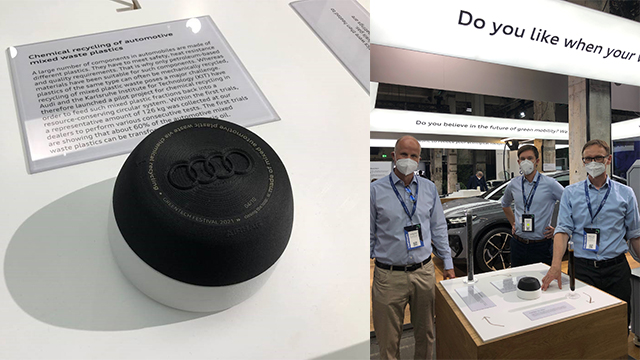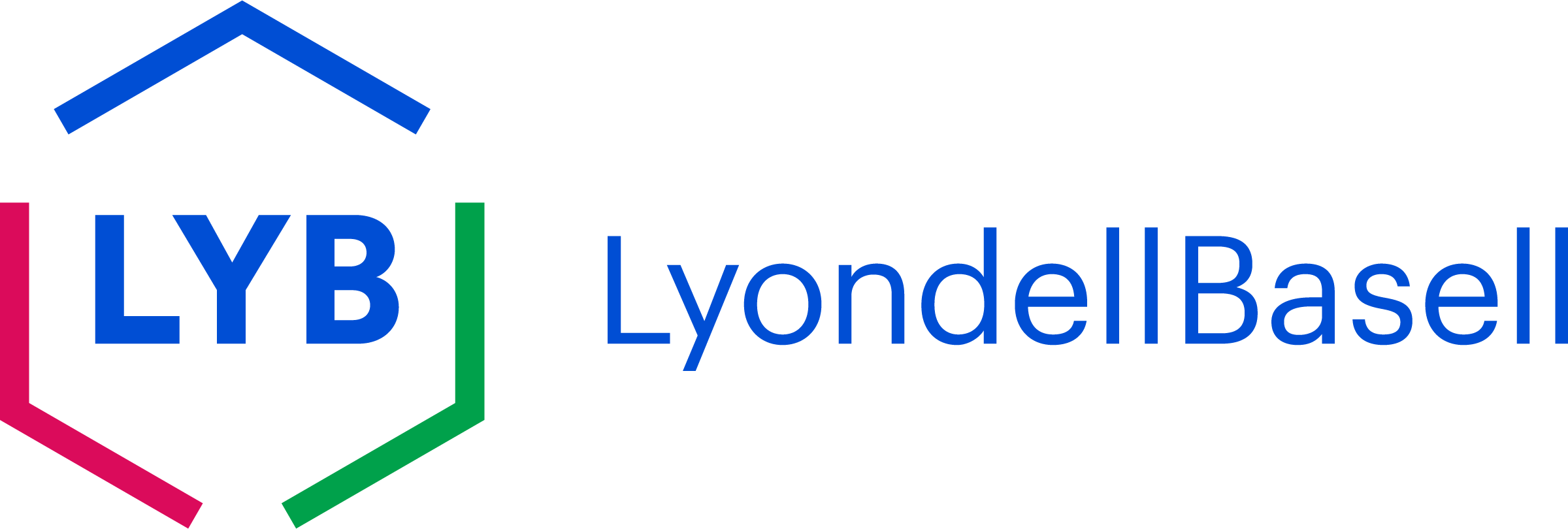3D printing is an undeniable trend and is being adopted by an increasing number of industries. While 3D printing is often associated with the production of single items, such as prototypes or customized parts, it is also used for large-scale custom manufacturing. An example of how 3D printing is being adopted with an added sustainability benefit in major end markets is LyondellBasell’s recent collaboration with a few key partners. The company worked with the automotive manufacturer, Audi, and German research university, Karlsruhe Institute for Technology (KIT), as well as other industry partners, to produce 3D-printed airbag covers that support recycled content, all made possible through a new technology from LyondellBasell.
LyondellBasell recently launched the Beon3D product family, which enables the production of complex, high-quality, 3D printed objects in one step. Beon3D compounds achieves one-step production by combining polymer technologies and expertise with 3D printing. This new polypropylene (PP) customizable product range aims at advancing the adoption of 3D printing in markets such as transportation, industrial and consumer goods, building and construction.
LyondellBasell experts and the partnering companies showcased the performance of Beon3D compounds in real-time by using the 3D technology to print the airbag covers during a live demonstration at the Greentech Festival in Berlin, Germany in June 2021. Certified recycled content was allocated to the Beon3D compounds using mass-balance.
“Major automotive manufacturers today are looking for new ways to not only reduce CO2 emissions through lighter vehicles, but also create circular systems, and this is our objective for the project with Audi,” said Erik Licht, LyondellBasell director of New Business Development in Europe. “What is extraordinary about our product is that it is at the intersection of 3D printing and sustainability. We obtained feedstock made from mixed automotive plastic waste that is processed in an advanced (molecular) recycling process, and that feedstock was allocated to the production of the Beon3D materials being used in the airbag covers using a mass balance approach. This reduces the consumption of resources because plastic waste is used to create new plastic.”
In many cases, PP compounds are the material of choice in industrial manufacturing due to their good mechanical properties, scratch and chemical resistance, light weight and resource efficiency.
The Beon3D product line is just another way LyondellBasell continues to innovate, providing customers with sustainable solutions.
For more information about Beon3D compounds, please contact us at Beon3D@lyondellbasell.com


